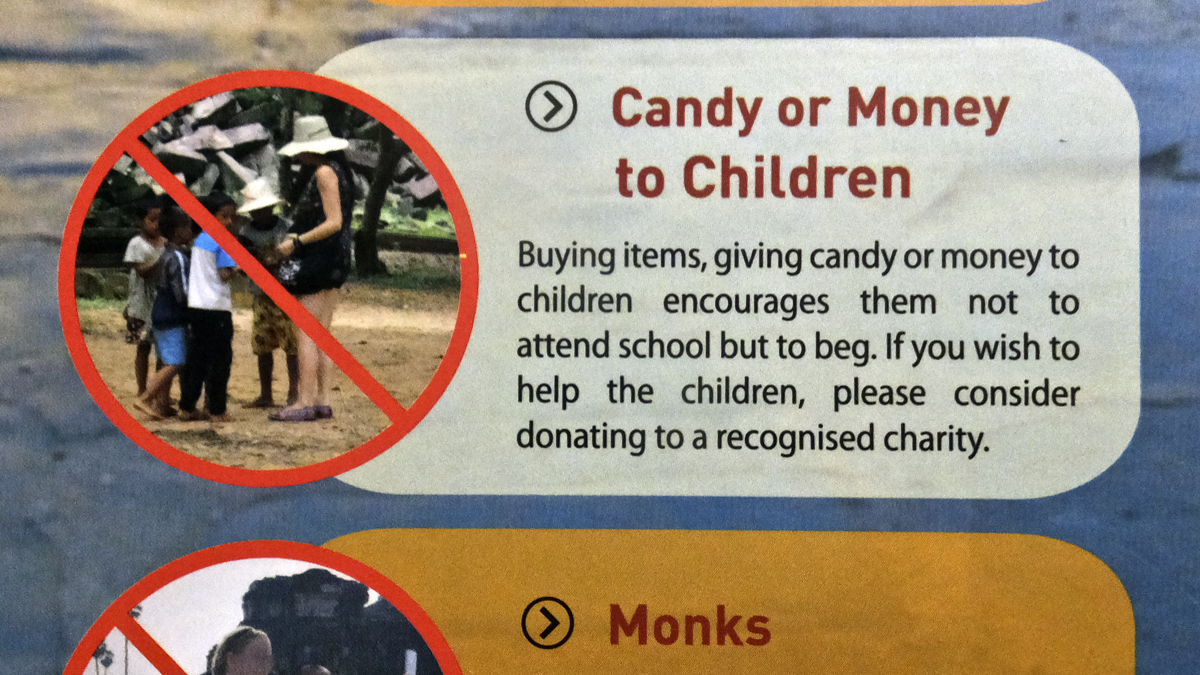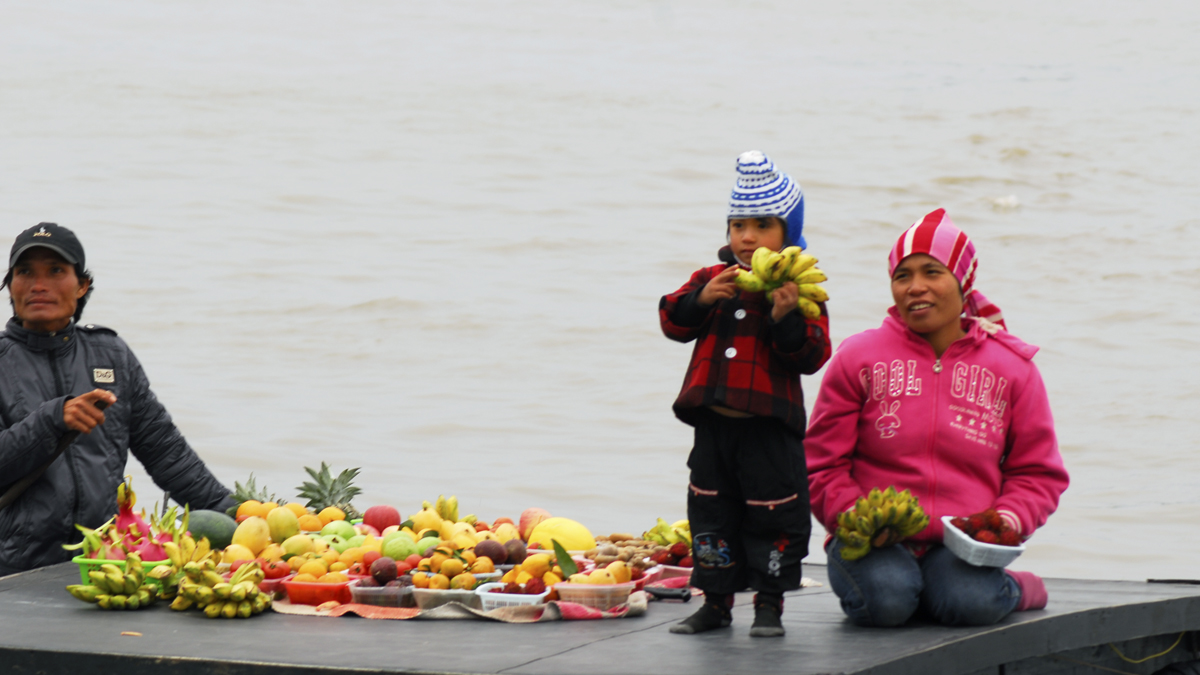
A tale of two cities:
In one village, the children are wide-eyed and innocent, wearing broad smiles and playing with seemingly boundless energy. They wave, cheer and mug for tourist cameras. They take your hand to lead you up the path to their temple and hand you flowers as an offering of friendship.
In the other, the kids are somber; their faces are expressionless; their eyes are pleading. They proffer flowers or postcards but they want several dollars in return. Or they hold out bare hands, asking again and again for cash. If you give something to one of them, you are hounded by a dozen others for an equivalent handout.
The two towns are both in the same country in Asia. The only real difference between them is that the second village is a regular stop for a growing number of cruise ships.
A few years ago, the children all probably reacted with the same openness to strangers. But as tourists became part of the daily scene, they couldn’t help noticing that visitors from far away equated friendship with money. If a child was sad or shy, the strangers would try to evoke a smile by reaching into their pockets and pulling out some cash. So the kids began to reserve their smiles to get a share of the loot.
It’s a ploy that works. Many people on tours I’ve done from cruises in Indonesia, Thailand, Myanmar and Cambodia carried around large wads of U.S. one dollar bills to peel off to fill outstretched hands at every port. They felt guilty about having so much when these children seemingly had so little.
As humanitarian as that sounds, they were helping create a culture where begging beats working and kids may never learn to be self-reliant.

Cambodia is a particularly striking example of the simple arithmetic of the difference between the developed nations and the Third World. Garment workers’ unions have been negotiating to get the average monthly wage to $180, or about $6 a day. A farm worker in rural Cambodia is lucky if he makes the equivalent of three dollars a day.
That doesn’t seem livable by our standards, yet in Cambodia you can feed a family of four on the traditional and perfectly adequate diet of rice, fish and fruits for about a dollar a day.
What is a child to think, then, if in a couple of hours of thrusting out his hand to tourists he can make more than his father who spends an entire day working in the fields or factory?
And the syndrome is not limited to Asia. The same thing is happening on some Caribbean islands. Begging and touting have become so annoying in Jamaica that tourists avoid the cities entirely. Raise a camera in neighborhoods around major resorts and someone invariably says “It costs a dollar to take a picture of my town.”
These begging kids aren’t crippled; they aren’t starving. They are able-bodied children who have learned to play the system and beg rather than got to school and develop job skills.
A message that’s increasingly being made by cruise lines, hotels, tourist agencies and governments is that in the face of demands for money, you should always say, “sorry, but no.” If you do give something, there’s a snowball effect and more will be pleading for their share.
On a personal level, a dollar is not worth the loss of self-respect and mutual human dignity that playing at being Lord or Lady Bountiful brings. Handing out money has only one message: “I’m rich. Poor you.”
Which is not to say that tourists shouldn’t travel in the Third World. Without the jobs tourism creates and the money tourists spend in them, many places would be much worse off.
I’ve heard people say they will never travel overseas because tourists “exploit” cheap labor in poor countries. Yet in many places working in a hotel, restaurant or boutique is a prestige-filled and lucrative career. Being a tour guide in Cambodia is a profession that pays much more than a factory job pays. Tourism is the industry many countries depend on to escape their dependence on subsistence agriculture.

My suggestion is one that cruise lines and tour companies are publicly endorsing: give small gifts on organized visits to schools, monasteries or homes, but don’t succumb to begging on the street. Pens, pencils and strips of the brightly colored stickers of animals or stars or rainbows that you can get at dollar stores are friendly gifts that never fail to bring smiles from kids, whether in China or Canada.
Balloons are also popular, especially if you can take the time to blow them up for children. They also come in a rainbow of colors, which gives kids a chance to choose a favorite.
I used to give out collectible pins or lapel flags, but good looking ones now cost several dollars each and tacky ones are just tacky.
Some people like to hand out gum or candies, although the kids are better off without the sweets, especially in countries that still have poor dental care.
I find that people everywhere are open and friendly to people who demonstrate friendliness to them. Your smile and showing kids some of the digital photos you’ve taken on your visit could be the best single gift you can give.
That said, cash is still the most welcome thank you for tour guides who have done their job well.






I really hate to be a nit picker, but your photo caption places Ha Long Bay on Thailand. Unless my atlas is wrong Ha Long Bay is in Vietnam!
Thank you Wallace, for clarifying this issue very well.
Very good article, explaining well an important issue. All cruise ships should include this article in their packages to customers. If travelers want to help these kids, donating to a local nonprofit makes sense. Cruise ship companies should include a list of such organizations to assist tourists, and the tourism industry can add another great benefit it provides — helping to elevate the quality of life and education for many people in the countries where it flourishes.